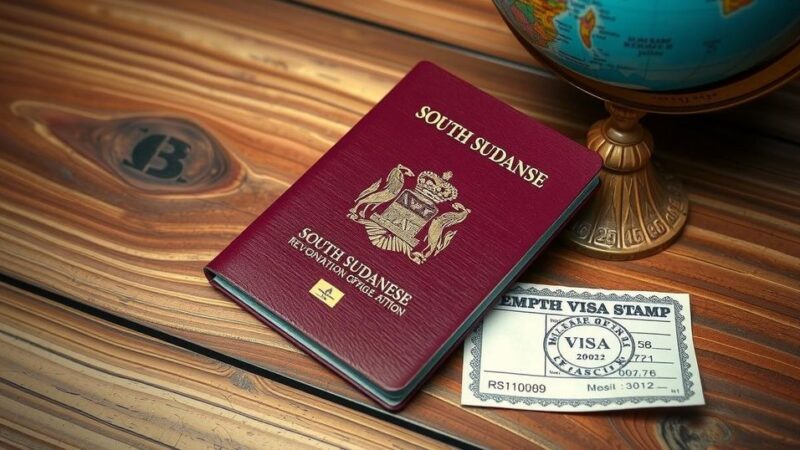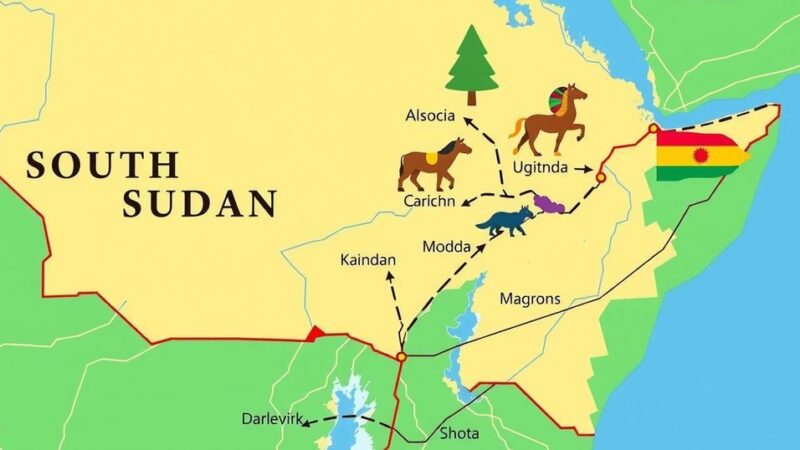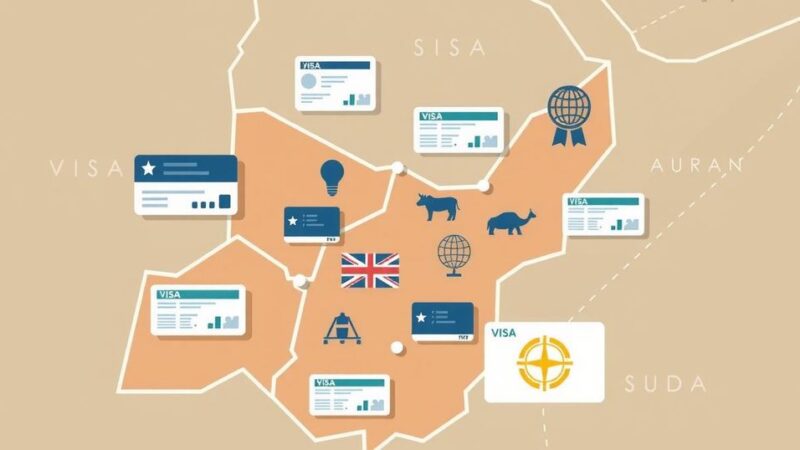Rising political tensions and violence in South Sudan, specifically in Upper Nile State, have raised fears of a renewed civil war. Uganda’s military intervention at the government’s request has complicated the situation, causing opposition groups to withdraw from peace negotiations. Historical grievances between the Nuer and Dinka communities and recent provocations by the White Army amplify tensions, necessitating dialogue and community engagement to avert further conflict.
Political tensions in South Sudan have surged, raising concerns over a potential civil war resurgence. In early March 2025, Uganda deployed troops to the nation at the government’s request, resulting in aerial bombardments. This Ugandan intervention prompted opposition groups to withdraw from discussions regarding a joint military system, jeopardizing the 2018 power-sharing agreement designed to stabilize the country following a prolonged civil war. Jan Pospisil, who studies South Sudan’s political dynamics, sheds light on these escalating issues.
In early March 2025, violent clashes erupted as the White Army, a militia group representing the Nuer community, attacked South Sudan People’s Defence Forces in Nasir County, Upper Nile State, resulting in nearly 50 fatalities and numerous injuries. The White Army asserts its actions were in self-defense. This violence mirrors past conflicts but has escalated dangerously, with government responses including aerial assaults and the detention of prominent opposition figures contributing to rising tensions.
The root causes of the ongoing conflict are intertwined with historical animosities between the Nuer and Dinka communities, exacerbated by the 1991 SPLM division. Riek Machar’s establishment of the Nuer-focused SPLM-Nasir faction ultimately led to years of internal strife. The White Army emerged during this tumultuous period, primarily for community defense, and has remained largely independent of political control, complicating the current scenario as statements attempt to merge its actions with opposition politics.
The situation in Nasir differs markedly from the civil war’s onset in 2013, when government troops conducted retaliatory assaults on the Nuer-majority town, leading to extensive destruction. Recent White Army actions stem from specific provocations, culminating in clashes that embarrassed the national army and resulted in territorial gains for the militia. Furthermore, the government’s narrative targeting the opposition fails to recognize the White Army’s historical independence, suggesting that current arrests of opposition leaders are more of a strategic political move than efforts to resolve the crisis.
To avert a repeat of the civil war, it is imperative for the South Sudanese government to engage in dialogue and community demobilization. Indiscriminate attacks and arbitrary detentions of opposition figures must cease, while influential community leaders should be actively engaged in negotiations to alleviate tensions. The upcoming rainy season, anticipated to begin in April, offers a potential opportunity for confidence-building measures amid the logistical challenges posed by adverse conditions.
Internationally, the response to the violence in Nasir has been largely rhetorical, with the UN mission calling for restraint but failing to adequately address the complexities of the White Army’s mobilization. A clearer condemnation of the unjustified arrests by the UN leadership is crucial to prevent reinforcement of government narratives justifying military aggression. It is essential for international entities to advocate for de-escalation and propose political solutions that tackle the long-standing grievances fueling conflict in the region.
In conclusion, the situation in South Sudan is characterized by escalating violence and rising political tensions, primarily involving the White Army’s actions and the government’s response. To prevent a return to civil war, it is vital for the government to engage constructively with community leaders and to prioritize dialogue over arrests and military aggression. The international community must play an active role in urging de-escalation and addressing the underlying issues that contribute to the instability in the region.
Original Source: theconversation.com






